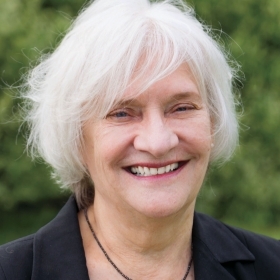Illustration by Dan Page C/O Theispot.com
How can the Wellesley faculty, as educators, respond to the climate change crisis? This is a question Tom Burke, the Ralph Emerson and Alice Freeman Palmer Professor of Political Science, began thinking about seriously in 2019. Could it be possible to harness the multiple perspectives of the liberal arts to allow the Wellesley community to better understand climate change and how to respond?
Burke and Jay Turner, professor of environmental studies, posed this question in Academic Council that fall and got an enthusiastic response. Out of subsequent discussions came the experimental course The Climate Change Crisis, which will be offered for the first time in the spring semester.
Five faculty members—a marine ecologist, a poet-critic, a historian, and two political scientists—will team-teach the course in its first year, each delivering lectures on climate change that reflect their expertise. Students will also engage in active-learning experiences that build on the lectures, and there will be public-facing events for the broader Wellesley community.
Megan Núñez, dean of faculty affairs, points to The Climate Change Crisis course as a compelling example of the kind of curricular innovation, interdisciplinary collaboration, and focus on grand challenges that are called for in the College’s strategic plan, which was announced in July. “Wellesley is a place where people are very excited about ideas, and also where our students are really motivated to change the world. I love the idea of thinking about our curriculum in that way,” says Núñez, who was on the strategic plan’s steering committee and in its community working group.
The strategic plan, almost two years in development (see “From the President”), outlines four main goals:
- To increase the transformative effect of the education Wellesley offers by elevating inclusive excellence, by renewing the curriculum, and by adopting a consistently holistic educational philosophy.
- To redouble the College’s commitment to women’s empowerment and gender equality, understanding that it is inextricably linked to other dimensions of equality and justice, and to advance those fundamental values through systematic, unapologetic, institution-wide engagement with the world.
- To reform Wellesley’s organization and governance to both ensure broad and meaningful participation in the life of the College and enable effective and agile decision-making.
- To ensure a residential experience for students and a community for faculty and staff that promote a shared sense of belonging, and to foster a campus culture that is collaborative, respectful, and adaptable.
Kristina Niovi Jones, director of the Wellesley College Botanic Gardens and a member of the strategic plan’s steering committee, says that the liberal arts working group discussed the need to move away from the “box-checking” distribution requirement model, while also making sure that “for students, this is a time of exploration. Exploring their interests, gaining new perspectives, getting out of their comfort zones academically,” Jones says. Steering committee members referred more to “the Wellesley experience” than “the Wellesley education,” in their discussions, acknowledging all the learning that happens outside of the classroom.
One example of how Wellesley is addressing gender inequality is the Summit on Women’s Economic Inequality, which the College plans to host in the spring. Motivated by the disproportionate impact of the COVID-19 pandemic on women in terms of job losses and economic inequality, particularly among women of color and single mothers, the summit will be a collaborative effort to understand the scale of the problem and to significantly contribute to an agenda for change. Executive Director of the Wellesley Centers for Women Layli Maparyan and Associate Professor of Economics and Director of the Knapp Social Science Center Olga Shurchkov ’01 will be leading the effort and partnering with the Global Institute for Women’s Leadership at King’s College London, Spelman College, and the White House Gender Policy Council.
The strategic plan repeatedly emphasizes the College’s deep commitment to inclusive excellence. “In every area of the plan, you can see our goals around inclusive excellence, whether we’re talking about curriculum, whether we’re talking about community, whether we’re talking about Wellesley in the world. Everywhere, it’s right there in the front,” says Núñez.
This fall, Wellesley is launching the Anne Shen Chao ’74 Office of Student Success, created to ensure that all students are able to thrive at the College. Built on the existing network of people and programs that support first-generation students and students from other underrepresented groups, the new office will jointly report to Michael Jeffries, dean of academic affairs, and Inés Maturana Sendoya, associate dean of students for inclusion and engagement. “Once [students] know that yes, I do belong here, the admission office didn’t make a mistake by accepting me, yes, it’s time for me to pursue these areas that I find really interesting … they’ll just fly,” says Maturana Sendoya.
The College begins the hard work of carrying out the plan’s vision this year.
“I’m so excited to see what people create when they’re really given the opportunity to take things apart and to figure out what’s important to them, and what it is that makes them want to get out of bed and teach about this thing tomorrow,” says Núñez.
For more information, read the strategic plan at www.wellesley.edu/about/strategicplanning and “Our Part in ‘One Wellesley’” by Kathryn Harvey Mackintosh ’03, executive director of the Alumnae Association, on page 36.








We ask that those who engage in Wellesley magazine's online community act with honesty, integrity, and respect. (Remember the honor code, alums?) We reserve the right to remove comments by impersonators or comments that are not civil and relevant to the subject at hand. By posting here, you are permitting Wellesley magazine to edit and republish your comment in all media. Please remember that all posts are public.